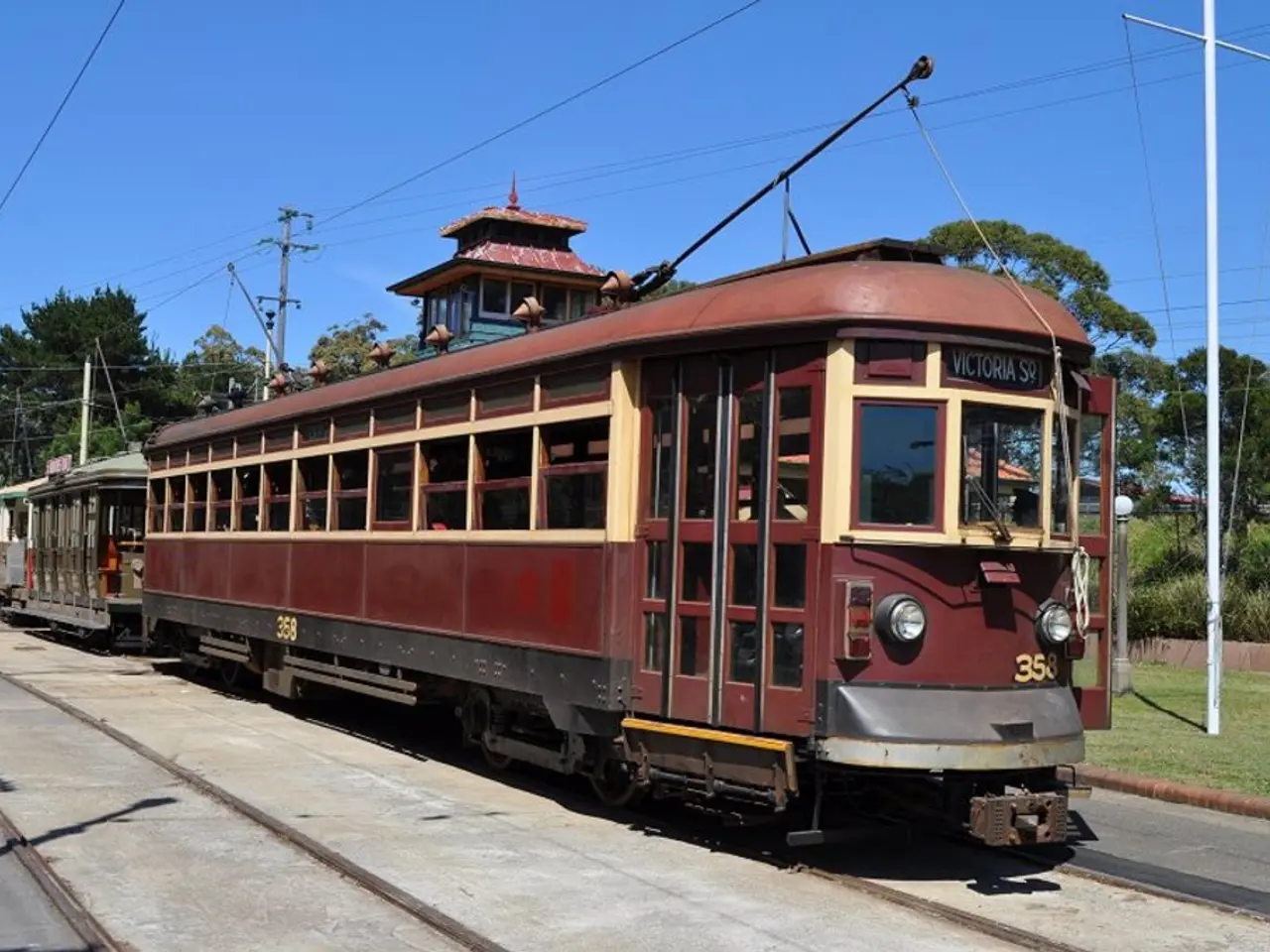Railway service between Berlin and Hamburg temporarily halted, lasting approximately nine months.
Berlin-Hamburg Railway Line Undergoes Nine-Month Renovation
The Berlin-Hamburg railway line will undergo a comprehensive renovation from August 1, 2025, to April 30, 2026. The nine-month closure is necessary for a complete infrastructure upgrade, affecting long-distance and regional train services.
Impact on Long-Distance Trains
Long-distance trains between Berlin and Hamburg will be rerouted via Stendal and Uelzen during the renovation. This diversion will maintain direct connectivity but results in reduced frequency (hourly instead of every 30 minutes) and increased travel time by about 45 minutes longer than usual. Commuters traveling from Berlin to Hamburg by ICE, IC, or Flixtrain will face longer journey times, and the trains may be more crowded.
Alternative Arrangements for Regional Trains
Regional rail traffic along the affected network will be replaced by a substantial bus substitution service involving more than 170 buses. Real-time information on alternative schedules and departures will be available via DB Navigator, bahn.de, and regional transit apps. Most regional trains from Berlin will end at Wustermark station during the renovation.
Additional Diversions
Trains to and from Rostock and Stralsund will be rerouted via Lübeck during the construction period.
Renovation Scope and Cost
The renovation project includes upgrading over 180 km of track, replacing around 200 switches, building six new grade-separated junctions, and modernizing signaling and traffic control systems along the corridor and adjacent branch lines. The estimated cost of the renovation is 2.2 billion euros.
Modernized Stations
During the renovation, 14 stations in Berlin and Brandenburg, including Wittenberge, Berlin-Albrechtshof, and others, will be modernized and partially expanded. Additionally, 28 stations, such as Falkensee, Finkenkrug, Brieselang, Nauen, and Neustadt (Dosse), will also undergo modernization and partial expansion.
Impact on Travel Plans
The Berlin-Hamburg railway line's renovation may impact the travel plans of many commuters. However, the German Railway expects better quality, punctuality, and fewer infrastructure-related disruptions in the future. The journey time for long-distance trains will range from 2 hours 20 minutes to 2 hours 45 minutes.
The Berlin-Hamburg railway line renovation, scheduled to last from August 1, 2025, to April 30, 2026, will necessitate a complete closure of the 278-280 km route for nine months. The renovation aims to improve the quality, punctuality, and reduce infrastructure-related disruptions in the future. During the closure, long-distance trains will be rerouted via Stendal and Uelzen, resulting in reduced frequency and increased travel time. Regional rail traffic will be replaced by a substantial bus substitution service. Real-time information on alternative schedules and departures will be available via DB Navigator, bahn.de, and regional transit apps. Trains to and from Rostock and Stralsund will be rerouted via Lübeck during the construction period. The renovation project includes upgrading over 180 km of track, replacing around 200 switches, building six new grade-separated junctions, and modernizing signaling and traffic control systems along the corridor and adjacent branch lines. The estimated cost of the renovation is 2.2 billion euros. The modernization of 14 stations in Berlin and Brandenburg, including Wittenberge, Berlin-Albrechtshof, and others, and 28 stations, such as Falkensee, Finkenkrug, Brieselang, Nauen, and Neustadt (Dosse), will also take place during the renovation. The renovation may impact the travel plans of many commuters, but the German Railway expects better quality, punctuality, and fewer infrastructure-related disruptions in the future.
- The railway line renovation will impact the transportation of goods and passengers in Germany's automotive and public-transit industries due to the diversion of long-distance trains and increased travel times.
- The extensive renovation of the Berlin-Hamburg railway line, involving finance to the tune of 2.2 billion euros, aims to upgrade infrastructure and modernize station facilities within the broader transportation sector.
- To offset the closure of the Berlin-Hamburg railway line, the finance sector will have to invest in alternative transportation methods, such as increased bus services and improved regional signaling systems during the nine-month renovation.




